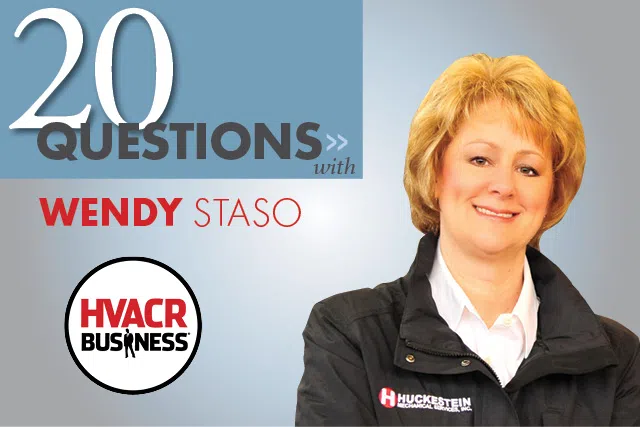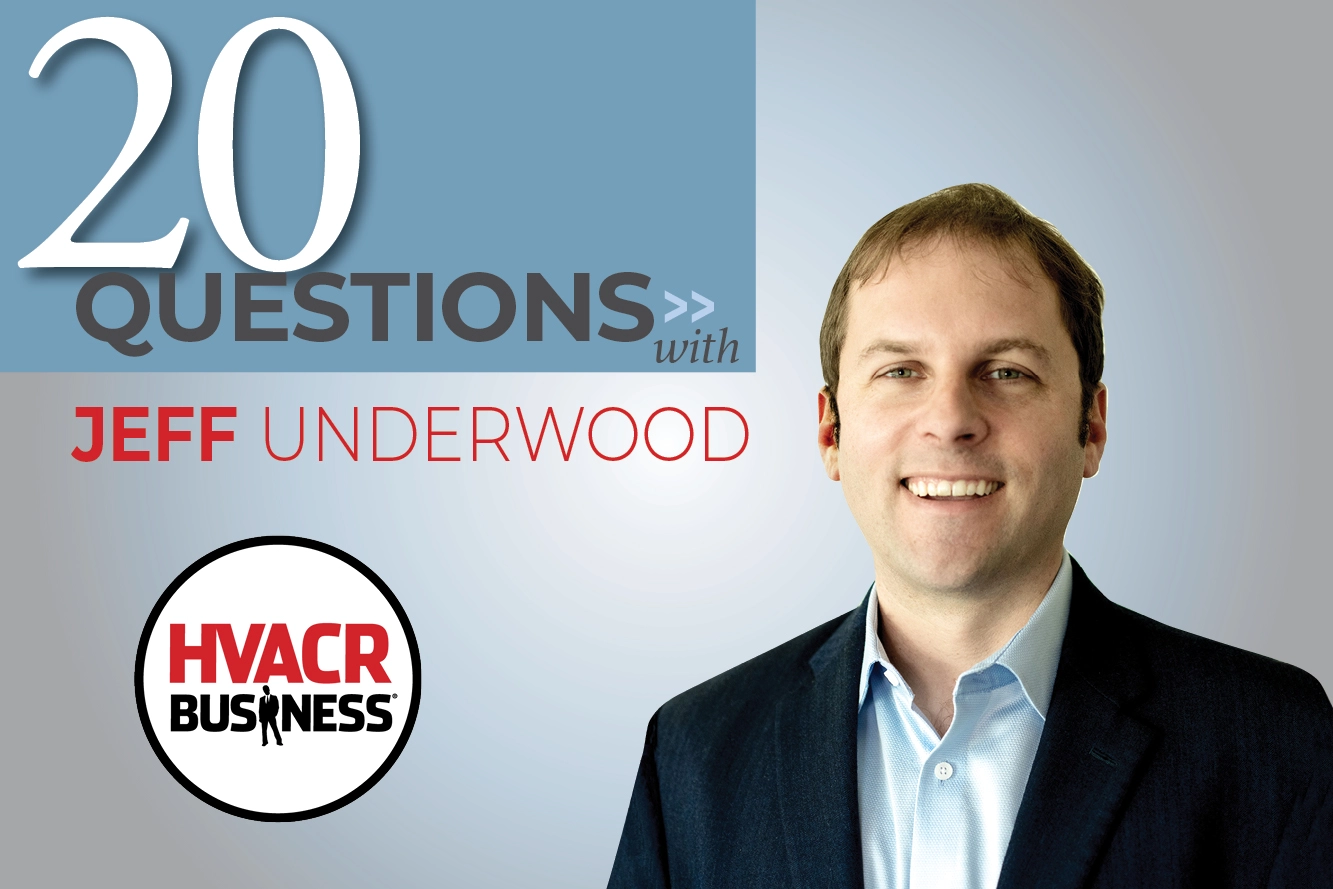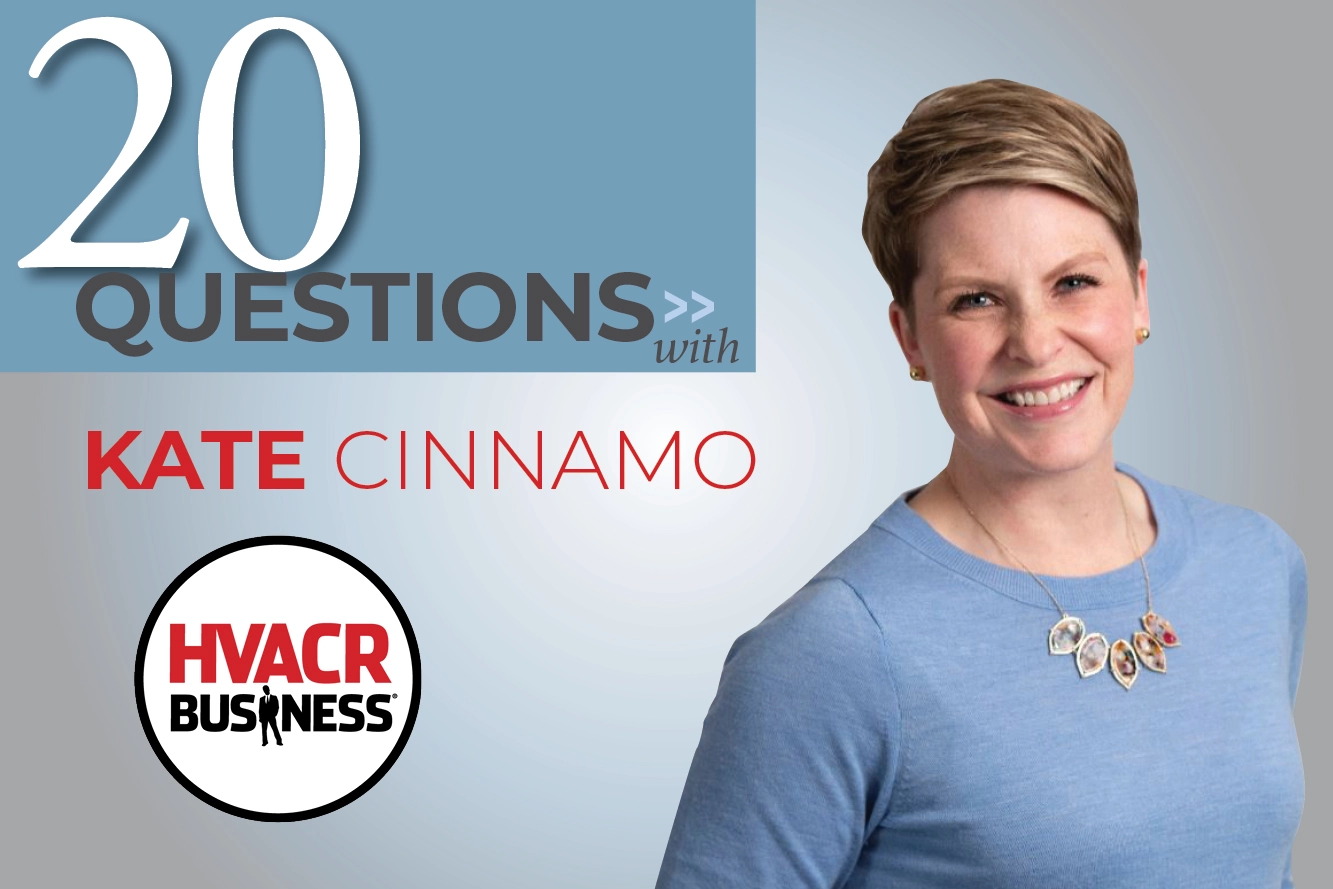HVACR Business Publisher Terry Tanker met with Wendy Staso, President and CEO of Huckestein Mechanical Services, Inc., the only woman-owned mechanical company in western Pennsylvania. The two discussed turning around a troubled company in difficult economic times, building the right team to do the job, rebuilding a brand, and structuring a company to make it profitable.
1. Can you tell me about your start in the HVACR business?
My husband and another gentleman purchased the company from the Huckesteins in 2003. We were the financial partners and the other gentleman was the day-to-day operations partner.
2. You entered as President and CEO in 2009 – what precipitated that?
The economic downturn of 2009 created significant challenges for the company. Margins were shrinking, banks weren’t lending, costs were increasing, and work was slow. Previous management had not prepared for lean times, and the partners decided on a buy/sell.
3. Were you managing the company as a husband-wife team?
No. My husband owns several other businesses, and did not have the time or the desire to “fix” Huckestein. So, we decided, I would fix it. I took complete ownership and control of the company, buying out my husband’s interest as well as the former partner’s.
4. What type of business background do you have?
I worked for Westinghouse for the 10 years following college. After that I started my own consulting firm and worked on large government proposals for the Departments of Energy and Defense. I was also involved in the science and technology industries, transportation, construction, corporate real estate, and environmental management.
5. What were the largest challenges you faced in the beginning?
Finance and operations were not structured to enable managers to make intelligent decisions. There was no clean data, so trying to determine where we were losing money and earning money was nearly impossible. My first challenge was to make sense of the numbers.
6. What happened once you were able to make those determinations?
There were four divisions; two were profitable, two were not. I made a tough decision and closed the two that were losing money.
7. How bad was it?
It was bad. In 2010 we had substantial losses, and I had to let 70 people go. But we were profitable in 2011 and have been ever since. I had to make many hard decisions, but they were critical for the company’s survival.
8. What were banks saying to you at the time?
Honestly, they didn’t think I could pull this off. They called the loan on the building. So, I sold it, paid off the note and we moved. They also called a term note on the company and a line of credit.
9. How were you able to attract other financing?
We personally invested in the company and we found a SBA lender. I belong to a number of women’s groups and was connected to Enterprise Bank, a non-traditional bank, through one of them.
10. What were your next steps?
I needed to establish my management team. I hired Mecal McDade to be in charge of operational efficiency and productivity, Wendy Burton for accounting and to get us to a place where we could make good decisions based on the numbers, and Ed Tworek to revamp our antiquated IT system. Rick Wuenschell and Ray Schnupp remained to lead service and sales.
11. Does Huckestein fill a particular niche in the market?
We are a specialty contractor, providing service, maintenance and design-build projects direct to owners. We work with a few design-build general contractors as well, and, of course, we are the only woman-owned union mechanical company in western Pennsylvania.
12. How is the company structured now?
We have four divisions: Energy Management, Construction and Design Build Projects, Specialized Service and Diagnostics, and Onsite Service and Maintenance. We deliver these core capabilities via a trademarked process called Sustainable System Delivery.
13. Can you tell me more about Sustainable System Delivery?
SSD is derived from the Integrated Project Delivery construction model where everyone works together to deliver a system that is responsive to owner and tenant needs. Mechanical systems account for about 60% of the energy spent in a facility, and they can play a substantial role in creating sustainable buildings. We believe sustainability is achieved by continually assessing the system to identify inadequacies through maintenance, which optimizes efficiency and equipment longevity.
14. Fast forward – how did you and your team end 2013?
We had a very good year. Although revenue was slightly down from 2012, profits were up. We’re working toward a repeatable revenue, predictable earnings business model to enhance the enterprise value of the company.
15. What part of your business background helped you most with the challenges at Huckestein?
Surprisingly, my ability to write clearly. My undergraduate degree is in journalism with a business minor. I find that if you can write clearly, you can think clearly.
16. Has being a female in this industry made success more difficult?
I don’t think so. I’ve never allowed myself to think I was anything but equal. I work hard and never take my eye off the ball.
17. Company turnarounds are never easy.
What’s been the most gratifying aspect?
Rebuilding our damaged brand. When I purchased the company, everyone in our market —vendors, competitors, customers — thought the company was going out of business. Now we are regarded as a premier mechanical contractor. People want to work with us.
18. What sets Huckestein apart from the competition?
We don’t just fix equipment; we thoroughly evaluate the system and environment in which it operates. We worry about our customers’ total mechanical systems so they don’t have to.
19. Now that the company is enjoying success, what’s next?
Now that our infrastructure is stabilized, we’re entering a new phase of aggressive growth. I just hired a new sales VP who has an incredible track record of helping businesses grow.
20. What do you do for fun?
My husband and I own a condominium in Costa Rica. Unfortunately, we don’t get there very often. Home is my favorite place in the world. Our kids are now adults, and we love spending time with them.






